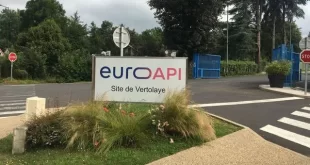The Spatial-Cell-ID facility of Lyon is seeking highly qualified personnel for the following positions:
-
- a bioinformatician/computational biologist specialized in spatial transcriptomics. The successful candidate will lead the development of methods and pipelines to analyze biological data generated.
- a biophysicist/bioengineer specialized in instrumentation for targeted spatial transcriptomics. The successful candidate will set up a multi-user imaging platform dedicated to spatial transcriptomics on multiple types of biological samples.
Spatial-Cell-ID is a new national spatial transcriptomics facility funded by the French “EquipEx+” excellence initiative and led by the Ecole Normale Superieure of Lyon (ENSL). It aims to study cellular identity and its spatial heterogeneity within tissues, organs, or biological systems in normal and pathological contexts, through very recent developments in spatial transcriptomics. Spatial transcriptomics technologies were elected “Method of the Year 2020” by the Nature Methods journal and are currently revolutionizing our ability to study complex biological systems. Spatial-Cell-ID offers national equipment for spatial transcriptomics that integrates imaging, sequencing, and data analysis technologies which in synergy will provide access to the transcriptome of any single cell within its native spatio-temporal environment. It hosts a comprehensible selection of technologies, including single-cell transcriptomics (10x Genomics), untargeted spatial transcriptomics (e.g., Slide-seq), and targeted spatial transcriptomics (e.g., MERFISH), associating state-of-the-art technological platforms of the University of Lyon. The data analysis hub of Spatial-Cell-ID will be located at the Ecole Normale Superieure of Lyon.
The employer: The Ecole Normale Superieure de Lyon is an elite French public higher education institution that trains professors, researchers, senior civil servants as well as business and political leaders. It is a symbol of French Republican meritocracy and it remains committed today to disseminate knowledge to the widest audience and to promoting equal opportunity. The ENSL brings together several laboratories at the cutting edge of science and working in different fields of Biology, Mathematics, Physics, and Humanities.
Bioinformatician/computational biologist: The appointed candidate will coordinate the data analysis hub of Spatial-Cell-ID and assist the users in the analysis of their single cell and spatial data. She/he will be working at the ENS of Lyon and closely collaborate with biologists and bioinformaticians to implement data analysis pipelines and develop new procedures as needed. She/he will communicate findings, coordinate skill transfers between labs, and provide training to project members as needed. She/he will be provided with extensive computational resources (workstations, High-Performance Computing facility of the ENS de Lyon) and will benefit from the support of the bioinformatics community within Spatial-Cell-ID.
Profile:
-
- Ph.D. or equivalent experience in quantitative science (Bioinformatics, Computational Biology, etc.).
- Good knowledge of one or more programming/scripting languages (e.g. Python, R, bash).
- Experience in omics data analysis, ideally in the context of single-cell and spatial technologies.
- Experience or the aptitude to quickly become proficient with the following techniques: untargeted spatial transcriptomics (e.g. Visium, Slide-Seq), targeted spatial transcriptomics (e.g. MERFISH),
- image analysis, machine learning methods for the analysis of biological data.
- Excellent communication and collaboration skills. English is the working language.
Desired starting date: Between October 2021 and January 2022.
Contract duration: 3 years, renewable. The position might lead to a permanent post.
Salary: Remuneration based on experience (from 2000 euros/month for a junior to 3000 euros/month for a senior research engineer).
Instructions for applicants: Applications should include a CV, a cover letter, and contact details for 3 referees to be sent to Yad Ghavi-Helm (yad.ghavi-helm@ens-lyon.fr). Please use the email subject “Spatial Cell ID”. For further information please contact the same address. Applications will be considered upon submission.
Biophysicist/bioengineer: The appointed candidate will build the imaging platform for targeted spatial transcriptomics of Spatial-Cell-ID. He/she will design, set up, and interface the different parts of the
experiment: microfluidic controls, super-resolution confocal imaging, and acquisition system. Once the experimental setup is running, he/she will assist new users and train them when needed. The recruited engineer will be working at the ENS of Lyon and closely collaborate with biologists, microscopists, and biophysicists, who will assist him/her in the different aspects of this highly interdisciplinary project.
Profile:
-
- Master’s or Engineering degree in biophysics/bioengineering/biology is required.
- Strong interest in instrumentation, if possible with experience in visual programming and coding for interfacing.
- Experience or the aptitude to quickly become proficient with the different steps involved in spatial transcriptomics experiments: design of probes, smFISH experiments, image acquisition, and analysis.
- Excellent communication and collaboration skills. English is the working language.
- Experience in imaging of biological systems and/or microfluidics is a plus.
Desired starting date: January 2022
Contract duration: 3 years.
Salary: Remuneration based on experience (from 2000 euros/month for a junior to 3000 euros/month for a senior research engineer).
Instructions for applicants: Applications should include a CV, a cover letter, and contact details for 3 referees to be sent to Jonathan Enriquez (jonathan.enriquez@ens-lyon.fr) and Sigolene Lecuyer (sigolene.lecuyer@ens-lyon.fr). Please use the email subject “Spatial Cell ID”. For further information please contact the same addresses. Applications will be considered upon submission.
 Etudes Non Stop Study Non Stop
Etudes Non Stop Study Non Stop



